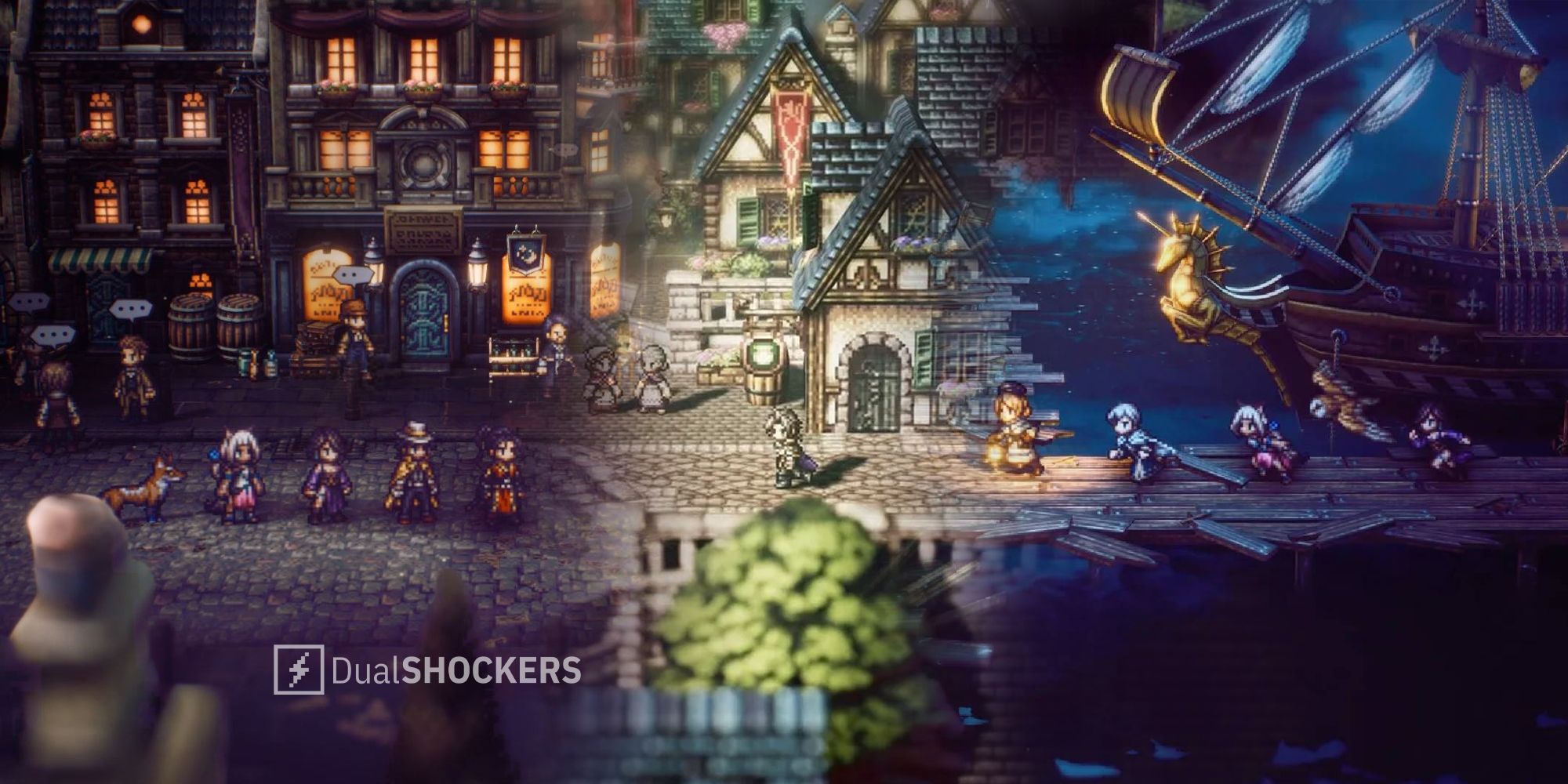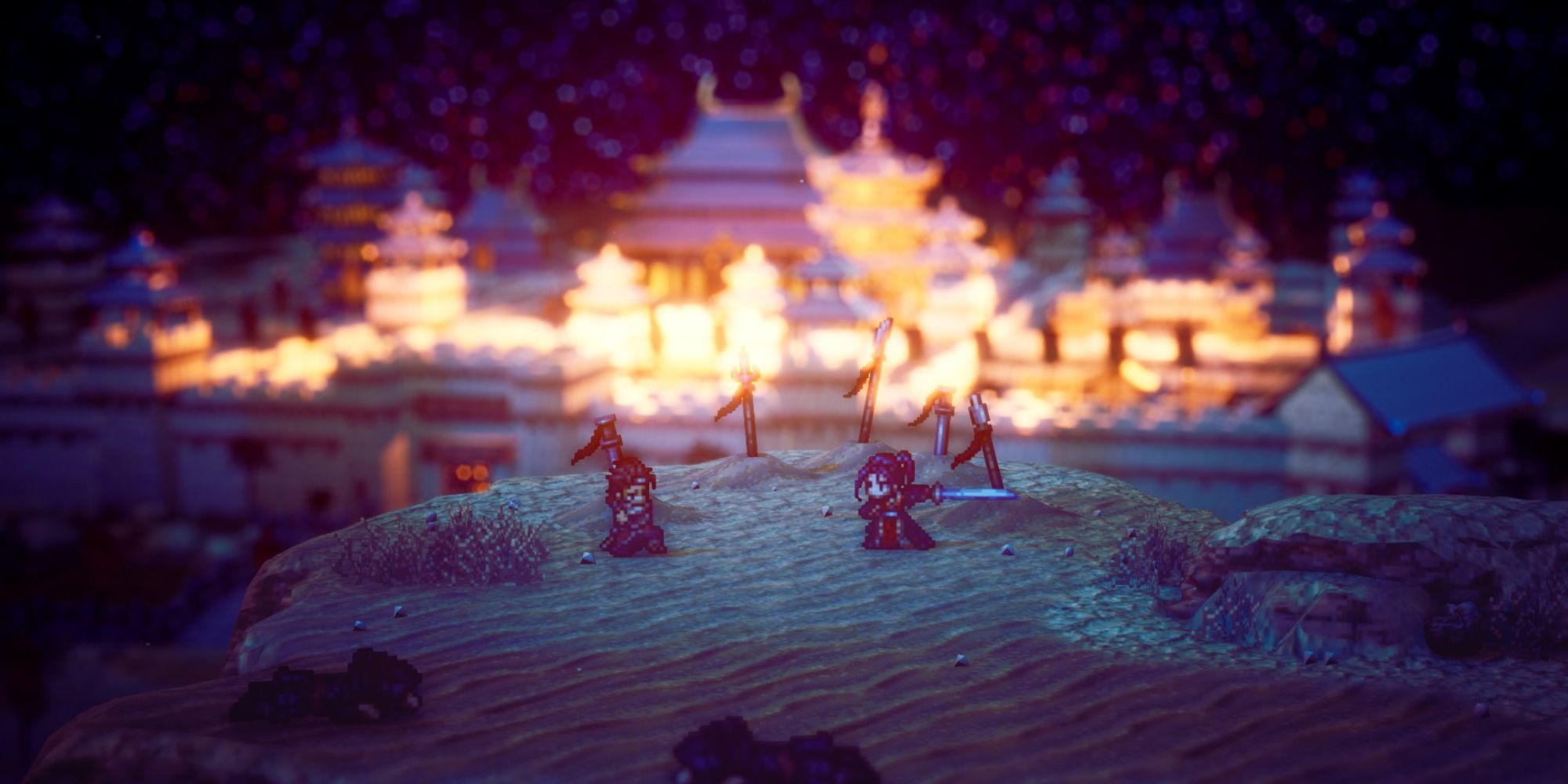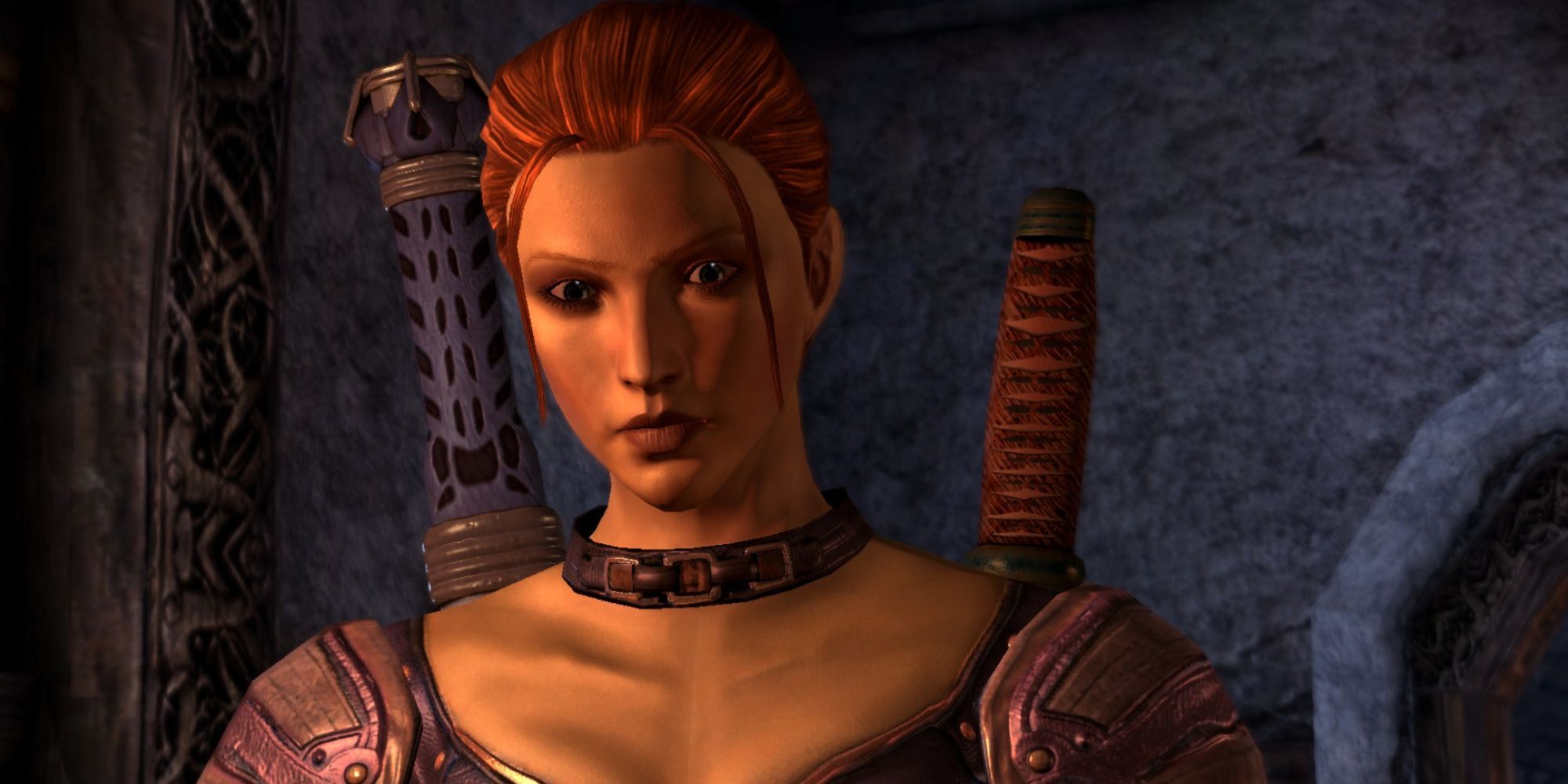Highlights
- Octopath Traveler 2 allows players to immediately play the origin story of recruited companions, creating a deeper attachment to the characters.
- Playing a companion's origin story before meeting them adds stakes and immediate investment in their goals, a design choice that could benefit the upcoming Baldur's Gate 3.
Ah, the noble companion. A staple of many RPGs worldwide, but especially ubiquitous in the broad genre known as JRPGs. Anecdotally, if one were to poll players on their favourite character in any given party-based RPG, chances are, they wouldn’t choose the protagonist but rather one of their plucky companions. Players form a strong attachments to these characters, just look at some of the legendary companions gaming has given us over the years. Kreia, Morrigan, Minsc, Garrus (BioWare have made some good RPGs, eh?), Serana, Aerith - the list goes on.
Well, I recently picked up Octopath Traveler 2. I’m no JRPG aficionado like my dear colleague Mohamed, but I’ve been known to dabble. One of the things about the game so far that's really jumped out at me is that when you recruit a companion to your party, you have the option of immediately playing their origin story, which takes about an hour to complete, and they give you the background of each character. I love it, and as excited as I am for Baldur's Gate 3, there's a bit of me that really wishes it did a similar thing.
Technically, these aren’t strictly “companions” as you can play as any of the eight characters in Octopath Traveler 2 (hence the 'Octo'). The first party member I acquired was Hikari. Had I just met Hikari in a random village, only for him to explain his motivations through gradual interaction, I don’t think I would’ve been as attached to this character as I am having played his origin story.
Hikari comes from a warrior culture, the younger son of an aging king. Much to the dismay of society’s upper crust, Hikari had no qualms about interacting with commoners, becoming popular among them. At the end of his life, the king ushered in an era of peace in an attempt to change the violent ways of his nation. The king’s assumed heir, Hikari’s older brother Mugen, is a bloodthirsty warlord who tires of peace.
You see where this is going? After the king decided to name Hikari his heir instead, Mugen assassinated his father, slaughtered the townsfolk and drove Hikari into exile. The young prince now aims to gather allies to eventually reclaim the nation of Ku from his traitorous elder brother. Now, this story might not have compelled me had I heard it second-hand from Hikari. Yet, standing above the city, watching it burn, I felt Hikari's righteous anger - it became my anger too. I had to win Ku back for Hikari. It added stakes to one of my party members, a story I had to see through for his sake.
Yes, we all become attached to companions regardless and a similar function is often achieved via companion quests. That being said, it was damn cool to embody the story of these characters before they met the player. Rather than a slow-burn relationship with a character, I’m immediately invested, I know the stakes, and I’m going to help them accomplish their goals. It’s different, and I think some RPGs could benefit from this approach.
Dragon Age: Origins actually did something similar with one of its DLCs, Leliana’s Song. It’s a 2-3 hour dive into Leliana’s backstory, detailing her betrayal at the hands of the dastardly bard Marjolaine. I wouldn’t say it has quite the same effect as in Octopath since this content was released post-release, meaning players had likely resolved Leliana’s conflict before playing her backstory. Still, it was a neat idea.
I don’t always care about companions in modern RPGs. Take Divinity Original Sin 2, for example, where I was far more attached to my own character than any of my companions. I know there are some Red Prince fans out there, but I didn’t care an iota for these people.
This is one of the reasons I wish Larian’s next title, Baldur’s Gate 3, had a similar mechanic to Octopath. Dungeons and Dragons is so intertwined with character backstories that it often shapes entire tabletop campaigns. I’m sure each BG3 companion is going to be made with a lot of love, and I’d enjoy getting a deeper insight on these characters. What if I could play Astarion during his time as a night-prowling vampire? See the depths he sunk to? Or see where Minsc formed that lovable optimism of his? There’s a lot of potential there.
I also appreciate that people may not want their playthrough momentum interrupted by having to play an hour of unrelated gameplay for every companion they recruit. In Octopath Traveler, it’s an optional feature but an hour of gameplay in Baldur’s Gate 3 is certainly going to be more of a sink for developers than an hour of gameplay in Octopath, and developers may not want X amount of hours of content potentially not played by players. Though in a game as big as Baldur’s Gate 3 supposedly is, maybe that’s not a big ask, or perhaps it's something we'll see in a future DLC release.
Think of some of your favourite companions’ backgrounds, be they tragic or comical. Wouldn’t it be great to experience those moments through their eyes? It’s not something that’s integral to an RPG experience, but it’s a compelling design choice that I'd love to see implemented in more party-based RPGs.



